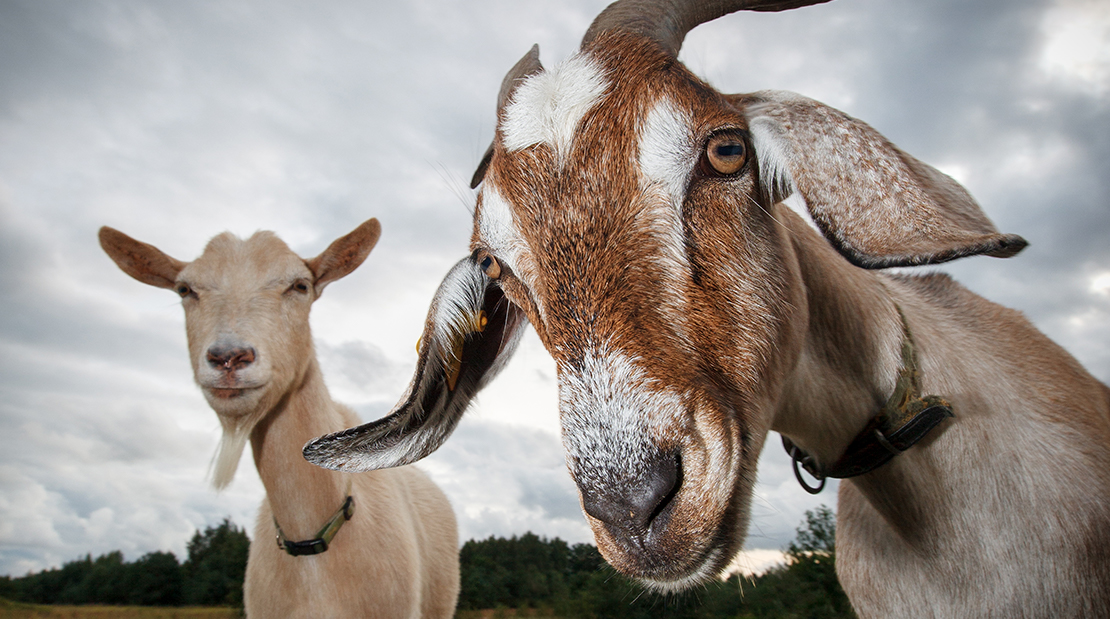
Pros and Cons of Goat Ownership
As with any animal, there are pros and cons to consider when deciding if ownership is for you. A large benefit is that many goat breeds exist, and you can determine what your needs are and select accordingly.
- Do you have acres of land you want to clear for usage? Does your yard or landscape have foliage or roughage? Well, a herd of goats can mow it. It works in your favor— and theirs— because they can digest what they mow and use it as energy.
- Goats can be a great source for milk production, and they are less cumbersome than owning large cattle. Goat milk is used for producing many useful items, including cheese and even hygiene products like soap and lotion.
- Their size is a great benefit for multiple reasons.
– They require less fencing
(But, fencing is essential to prevent predator encounters.)
– Their size creates many advantages relating to zoning regulations
(You can own more goats per acre than cows. For example, an acre may allow 1 cow or 1 bull. But, in the same size area, 7 goats would be allowed.)
– Their size makes them rather manageable; even children can feed them.
(It would definitely be dangerous for a child to attempt feeding a 2,000 lb. cow, though.)
Let’s discuss a few disadvantages.
- A con of goat ownership is they are small in stature and can’t protect themselves well.
Dogs are aggressive. Cows are big. Goats are neither.
They are generally a friendly, mild-mannered and docile animal. Though they have horns, they are more prone to run from danger before using their horns as a weapon. Some of their most common predators include wild dogs, coyotes, and foxes.
- They succumb easily to parasitic infections. So, their life span ranges from 8-14 yrs. The odds of contracting an infection is high because their constant browsing means they can encounter poisonous plants and shrubbery more frequently.
- Males can sometimes be more rambunctious if they are not castrated. They tend to be more aggressive during mating season, so unless your plan is to breed, castration is recommended. They may also exhibit rowdy behavior during a territorial dispute, and you may witness an occasional “ramming” of the heads and horns.
Again, depending on your reason for goat ownership, there are specific breeds you can choose. Research and conversations with a vet can help you decide which suits you best. They can guide you through steps to maintain a healthy herd with proper nutritional advice, reproductive care, and preventative exams.

